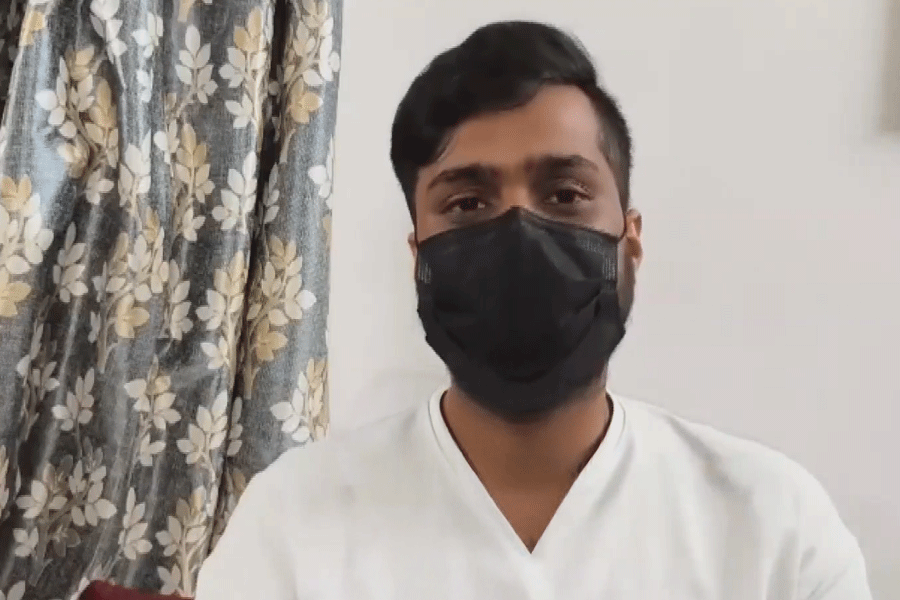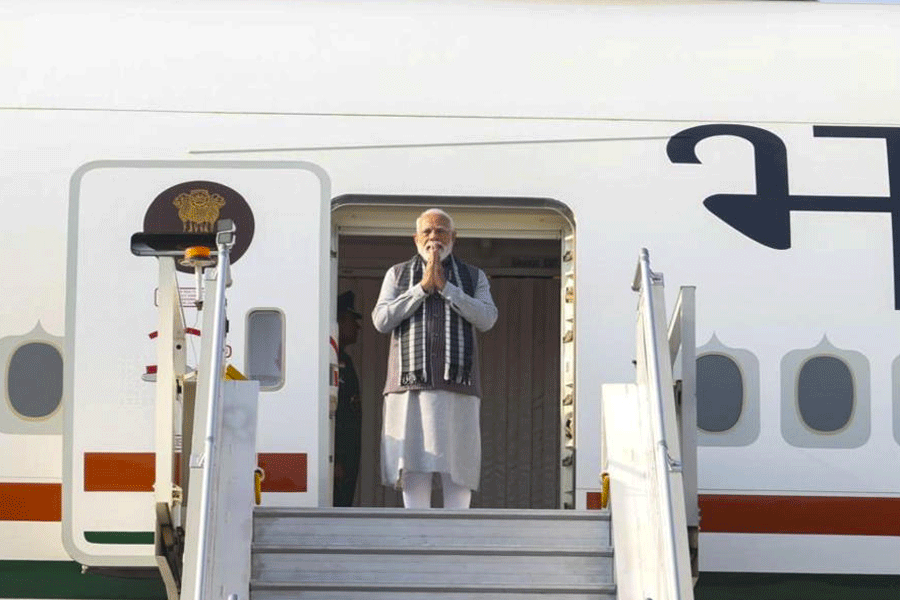Patna, Oct. 17: In a world that is fast turning to trial by Twitter, the mayhem at Madhubani is a pointer to the dangers of the public pronouncing its verdict on the basis of hearsay.
Social scientists and long-time Bihar observers say the madness that prevailed in the north Bihar town for three days is an alarming trend in a state that is known for its lynch mentality and has given rise to a question: have the people of the state become intolerant to crises?
Even chief minister Nitish Kumar appeared to have fallen victim to the hazards of hearsay when he blamed the administration for its “failure” to control the situation arising out of the purported death of a missing student who was later found to be in New Delhi with his girlfriend. The three-day fury left at least two persons dead in police firing.
(A team of the Madhubani police today took the missing student, Prashant Jha (17), on transit remand from their Delhi counterparts. Madhubani SP Ranjit Kumar Mishra said the boy and the girl were expected to reach the district by Thursday afternoon.
“The boy has got a named FIR against him. Hence he was taken on transit remand. The girl was kept with the juvenile board in Delhi and has been handed over to us. The girl, upon her arrival, will be presented before the district magistrate and her statement under Section 164 CrPC will be taken in the presence of a judicial magistrate. The DM will decide further course of action,” Mishra said.)
Discussions The Telegraph had after speaking to a cross-section of social scientists, bureaucrats and social workers suggest that the people seem to be losing faith in the administrative machinery.
Mounting corruption and an unbridled bureaucracy could have led to this change in the attitude of the public.
A question being debated among the rural people is that if elected representatives like legislators and mukhiyas are not heard, who would care about the common man.
Social scientists say the people’s aspirations to break away from the “no development” era and join the league of developing states have complicated the situation. People have sadly realised that the dream peddled by the political masters have remained a pipedream. Moreover, the political parties that were badly bruised in the last elections are now bidding to make a no-holds-barred comeback. They seem to have lost sight of “right” or “wrong”, say social analysts, who point to the trial often carried out on social networking sites such as Twitter and Facebook where allegations are levelled without any proof or evidence.
Sociologist Hetukar Jha said he was worried over the new trend emerging in the state. “The violence resorted to by the people during bandhs is the manifestation of their desperation in day-to-day life. They feel that nobody is there to listen to their grievances,” he said.
Jha attributed the reason behind the growing frustration to the hike in prices of essential commodities. “The prices of commodities have risen alarmingly. The policies are made by the bureaucrats, who are not aware of the problems faced by the common masses. Many of them might not have seen rural areas and village life and they plan the common man’s future while sitting in cosy chairs in air-conditioned rooms. As a result, the common man feels cheated. This gives rise to anger and whenever they find the opportunity, they don’t want to let it go,” Jha said.
The social scientist said the widening gap between the government and the common people was equally responsible for the people adopting violent methods to vent their ire.
“The communication gap among different cadres of democracy should be reduced,” he said. He said there were issues which were more serious than those that were apparent. The political parties should look into these aspects if they were concerned about people’s anger in the true sense of the term. “No political party, as the case appears today, is serious about their problems,” Jha said.
Bureaucrat-turned-politician Ashish Ranjan Sinha, a retired IPS officer, said the people have lost faith in the present system. Sinha said “even a minor road mishap leads to wild reactions”.
“This intolerance is more evident in Bihar, though Uttar Pradesh, too, is not free from this malaise. There is an urgent need to educate the people so that they don’t take the law in their hands. Frustrations like lack of jobs and problems related to economic conditions of the people give rise to such situations,” he said.
Sinha said the recent spurt in the incidents of road rage, wild demonstrations and mob violence required an in-depth study. “The social scientists should study the trend and suggest ways to get rid of the malady,” he said, adding that such incidents do happen in other parts of the country but they are frequent in Bihar. “That is worrisome.”
Neel Mani, former DGP and at present member of the Bihar State Human Rights Commission, said delayed response and dwindling faith in governance have made people impatient.
“They take the law in their hands for instant justice. Though the administration, in many cases, does its job, it is not reflected, as it happened in Madhubani,” he said.
Neel Mani added that at times people feel that the administration is not responsive. “It is equally important to make the people feel that they (government officials) were on the job and serious about dealing with their problems,” he said, adding that there should not be any communication gap between the government and the aggrieved.











